Tire Buying Guides
Free shipping
Best price guarantee
SimpleCrew exclusive savings
0% financing options
Tire replacement coverage
24/7 roadside assistance
Easy returns
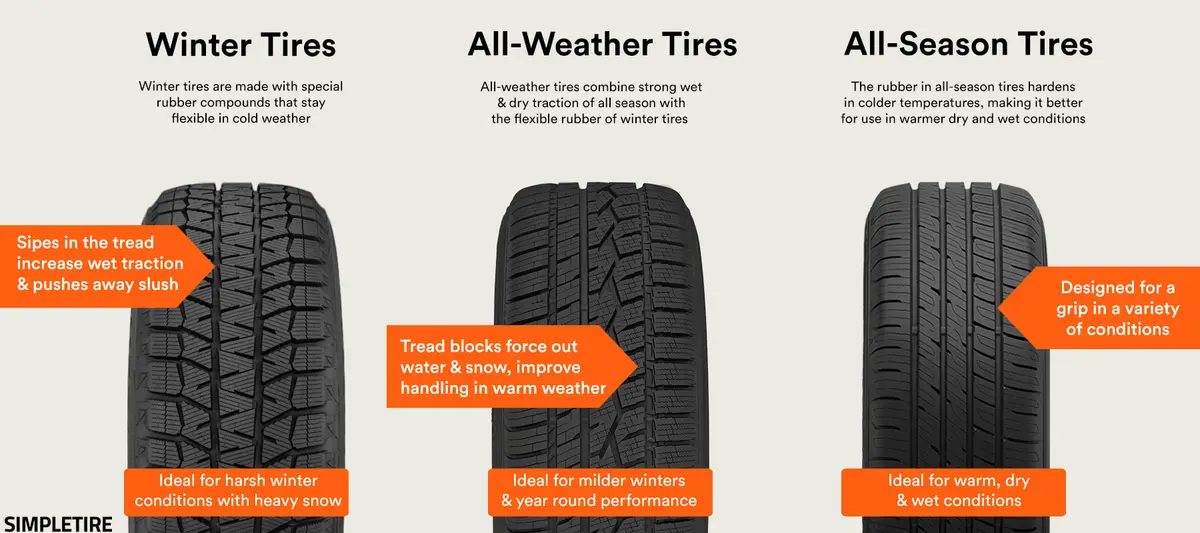
Choosing the right tires for your vehicle involves understanding how different tire types perform across various weather conditions and temperatures. Each tire category—winter, all weather, and all season—serves specific driving needs and offers distinct advantages depending on your climate and driving habits.
The tire industry has evolved significantly over the past decade, introducing innovative rubber compounds and tread designs that blur the lines between seasonal and year-round options. Modern tire technology now allows drivers to choose between maximum seasonal performance or convenient year-round capability without compromising safety.
Making an informed tire decision requires examining three critical factors: the weather conditions you regularly encounter, your driving patterns, and the level of convenience you desire. Understanding the fundamental differences between winter, all-weather, and all-season tires will help you select the option that best matches your specific needs and budget.
What Are Winter, All-Weather, and All-Season Tires?
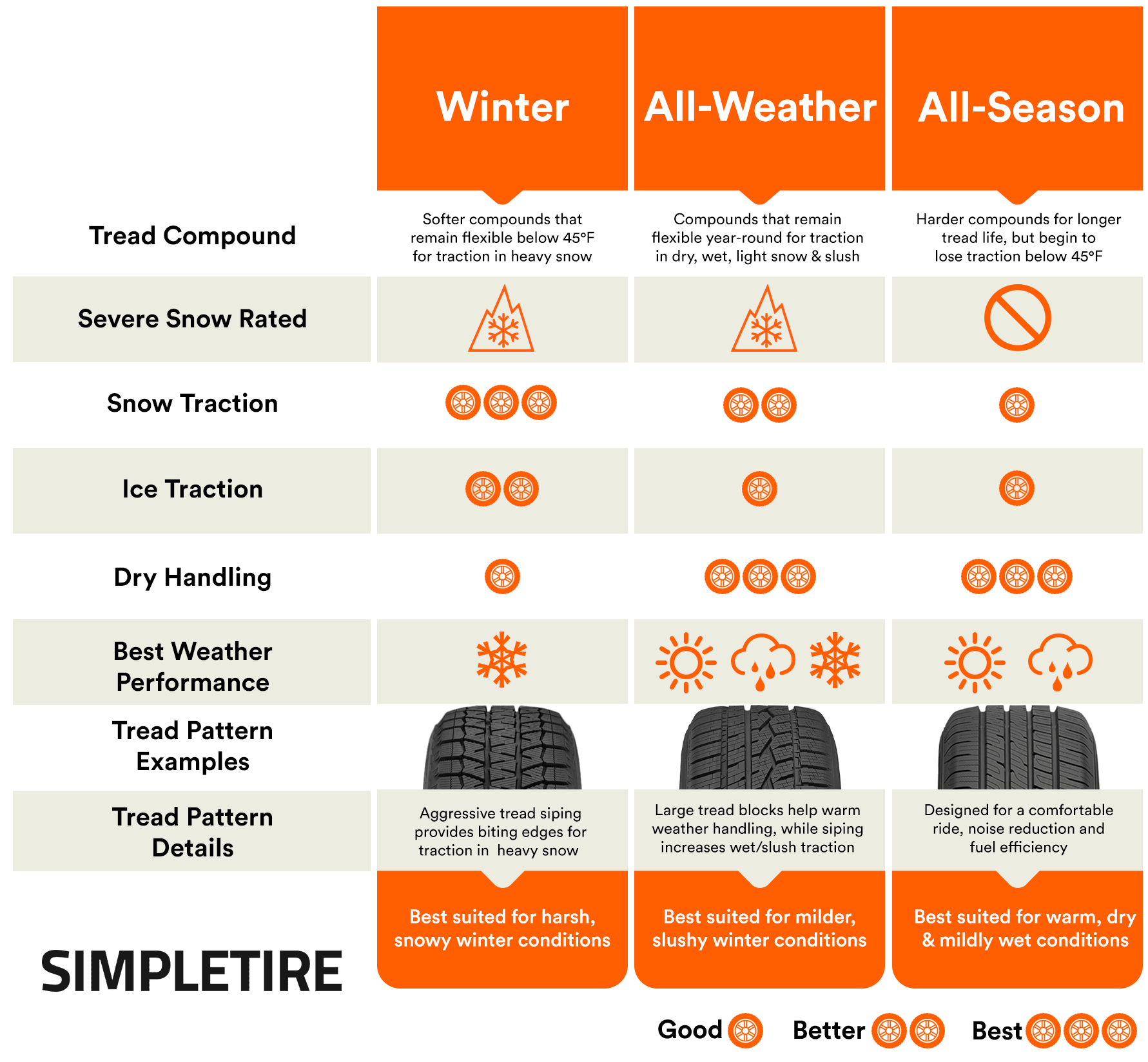
Winter Tires
Winter tires represent the pinnacle of cold-weather performance, engineered specifically to excel when temperatures drop below 45°F. These specialized tires feature soft rubber compounds that maintain flexibility in freezing conditions—a critical characteristic that allows the tire to conform to road surfaces and maintain grip when other tire types become rigid and lose traction.
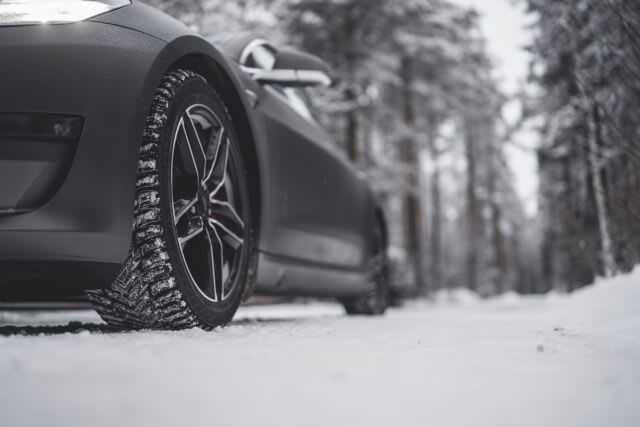
The distinctive deep tread patterns on winter tires serve multiple purposes: wide grooves actively channel snow and slush away from the contact patch, while thousands of tiny slits called sipes create additional biting edges that grip ice. Every winter tire displays the Three-Peak Mountain Snowflake (3PMSF) symbol on its sidewall, certifying that it meets industry standards for severe snow service by providing at least 110% of the traction of a reference all-season tire in standardized testing conditions.
The trade-off for this exceptional winter performance is that these tires must be removed when spring arrives. The same soft compounds that provide winter grip wear rapidly in warm weather, potentially lasting only a few thousand miles if driven through summer months. This seasonal requirement means owners need storage space for their off-season tires and must budget for twice-yearly installation costs.
All-Weather Tires
All-weather tires emerged as an innovative solution for drivers who experience winter conditions but prefer the convenience of a single tire set year-round. These tires combine advanced rubber chemistry with aggressive tread designs to deliver capable performance across all four seasons while carrying the coveted 3PMSF certification for winter driving.
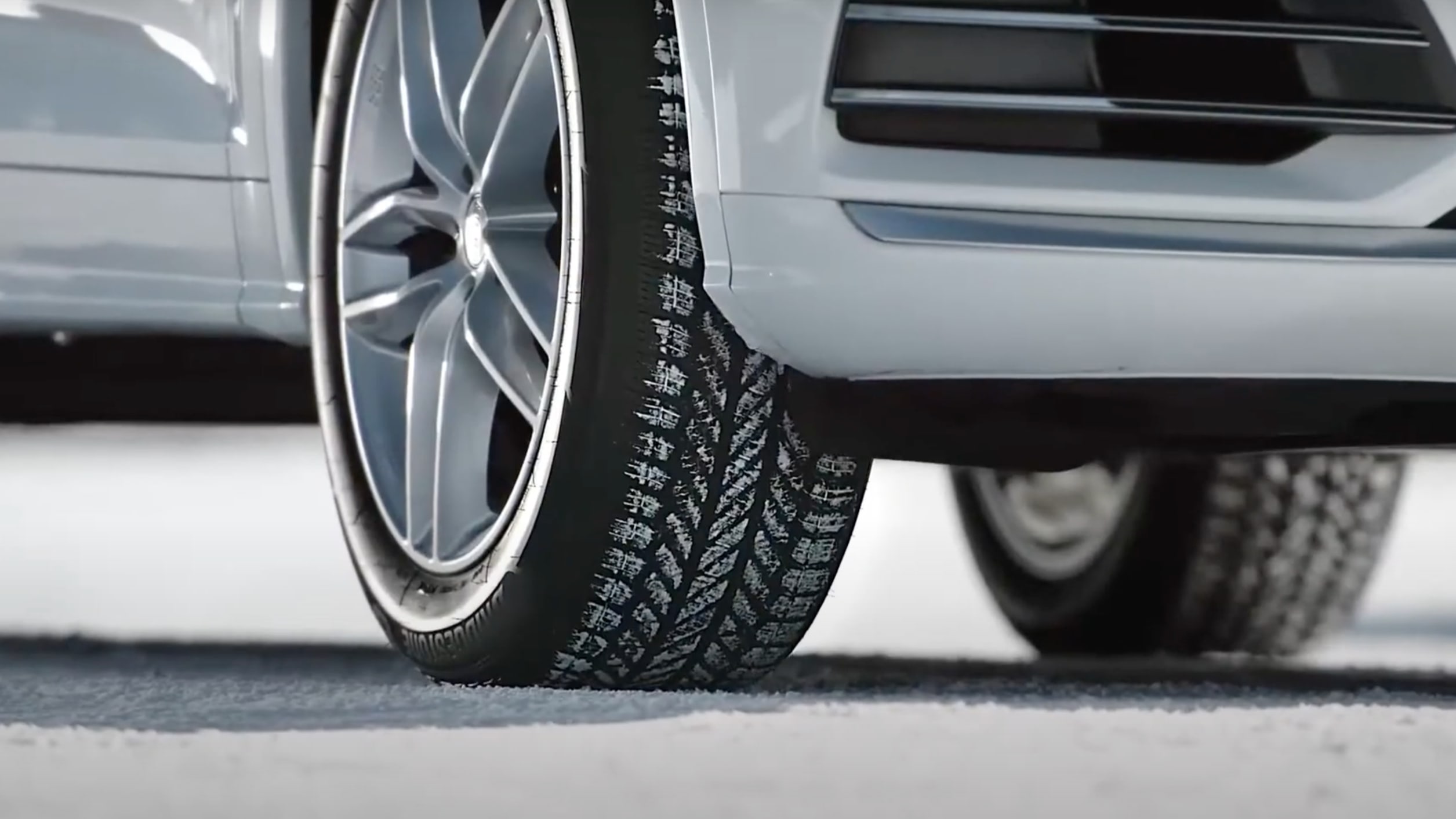
The secret to all-weather tire versatility lies in their dual-compound technology: rubber formulations that remain pliable enough for winter traction yet durable enough to withstand summer heat. Manufacturers achieve this balance through proprietary polymer blends and silica-enhanced compounds that adapt to temperature changes more effectively than traditional all-season rubber.
- Tread patterns: More aggressive than all-season designs with enhanced siping for snow and ice grip
- Temperature range: Effective from sub-freezing conditions up through hot summer weather
- Warranty coverage: Typically include 50,000 to 60,000-mile treadwear warranties
- Year-round capability: Eliminate the need for seasonal tire changes and storage
While all-weather tires don't match the extreme winter performance of dedicated snow tires, they provide approximately 70-80% of that capability—sufficient for most drivers who encounter moderate winter conditions. Popular models like the Michelin CrossClimate2 and Bridgestone WeatherPeak have proven that year-round performance no longer requires significant compromise.
All-Season Tires
All-season tires remain the most popular choice among drivers, coming as standard equipment on the majority of new vehicles sold in North America. These tires prioritize versatility and longevity for moderate weather conditions: delivering reliable performance in rain, dry pavement, and even light snow when temperatures stay above 45°F.
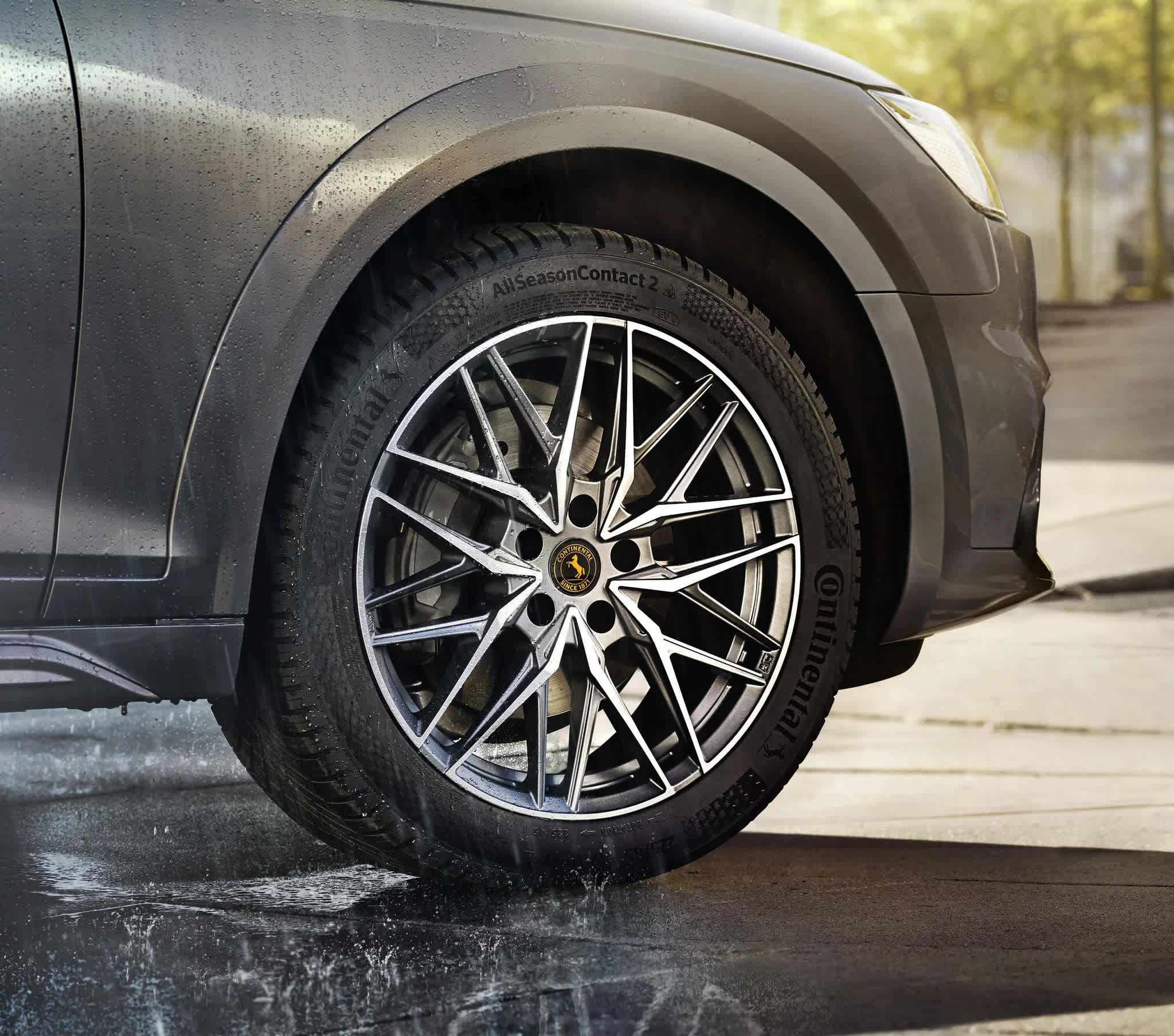
The engineering philosophy behind all-season tires focuses on balance rather than extremes. Their moderate tread depth—typically ranging from 8/32" to 10/32" when new—provides adequate water evacuation for wet conditions while maintaining a quiet, comfortable ride. The harder rubber compounds used in their construction promote even wear and extended tread life, often backed by warranties extending to 70,000 miles or more.
However, all-season tires have clear limitations in winter conditions. Without the 3PMSF certification, they lack the specialized compounds and tread features necessary for reliable snow and ice traction. The M+S (Mud and Snow) designation found on many all-season tires indicates only that the tread geometry meets certain standards; it doesn't guarantee actual winter performance. For drivers in mild climates where snow is rare and temperatures seldom drop below freezing, all-season tires provide an economical solution that eliminates the complexity of seasonal changes while delivering predictable performance in the conditions they're designed to handle.
How Do These Tire Types Perform in Different Conditions?
Winter Weather Performance
Winter tires dominate in extreme cold, specifically engineered to maintain traction on snow and ice. Their rubber stays pliable in low temperatures, ensuring a secure grip on slick surfaces. The intricate tread design, complete with numerous sipes, boosts their ability to handle icy roads safely. Ideal for regions with severe winters, these tires reduce the risk of skidding and enhance vehicle control.
All-weather tires provide a commendable alternative for those facing moderate winter conditions. With the Three-Peak Mountain Snowflake certification, they are designed to handle light snow and icy patches efficiently. These tires offer a balanced approach, giving you substantial winter performance, though they don't quite match the full capabilities of dedicated snow tires. All-season tires, in contrast, are less equipped for harsh winter weather. Their performance drops significantly when confronted with ice and deeper snow, increasing stopping distances and decreasing overall safety in such conditions.
Warm Weather Performance
In warmer climates, all-season tires are a reliable choice, performing well on both dry and wet roads. They are designed to provide stability and comfort, ensuring a smooth and quiet ride while promoting efficient fuel consumption. All-weather tires also offer solid performance in warmer temperatures, although they might generate a bit more noise due to their aggressive tread design, which is optimized for diverse conditions.
On the other hand, winter tires are not suitable for use in warm weather. Their soft rubber compounds, which excel in cold, become susceptible to rapid wear in heat, leading to diminished handling and increased wear rates. This makes them a less practical option for year-round use, emphasizing the need for seasonal changeovers to maintain their effectiveness.
Year-Round Versatility
For those seeking convenience, all-weather tires offer a year-round solution. Designed to perform across a range of conditions, they eliminate the need for seasonal tire changes and storage logistics. This makes them an appealing option for drivers in areas with varied but moderate climates. All-season tires also provide a year-round option but are best suited to regions where winter conditions are mild and infrequent.
Winter tires necessitate a more seasonal approach. They must be swapped out as temperatures rise to prevent accelerated wear and maintain their winter performance levels. This requirement can lead to additional storage considerations and costs associated with the biannual changeover process. Balancing convenience and performance, the choice between these tire types depends on your specific driving environment and climate needs.
What Are the Key Features and Technologies?
Tread Design Differences
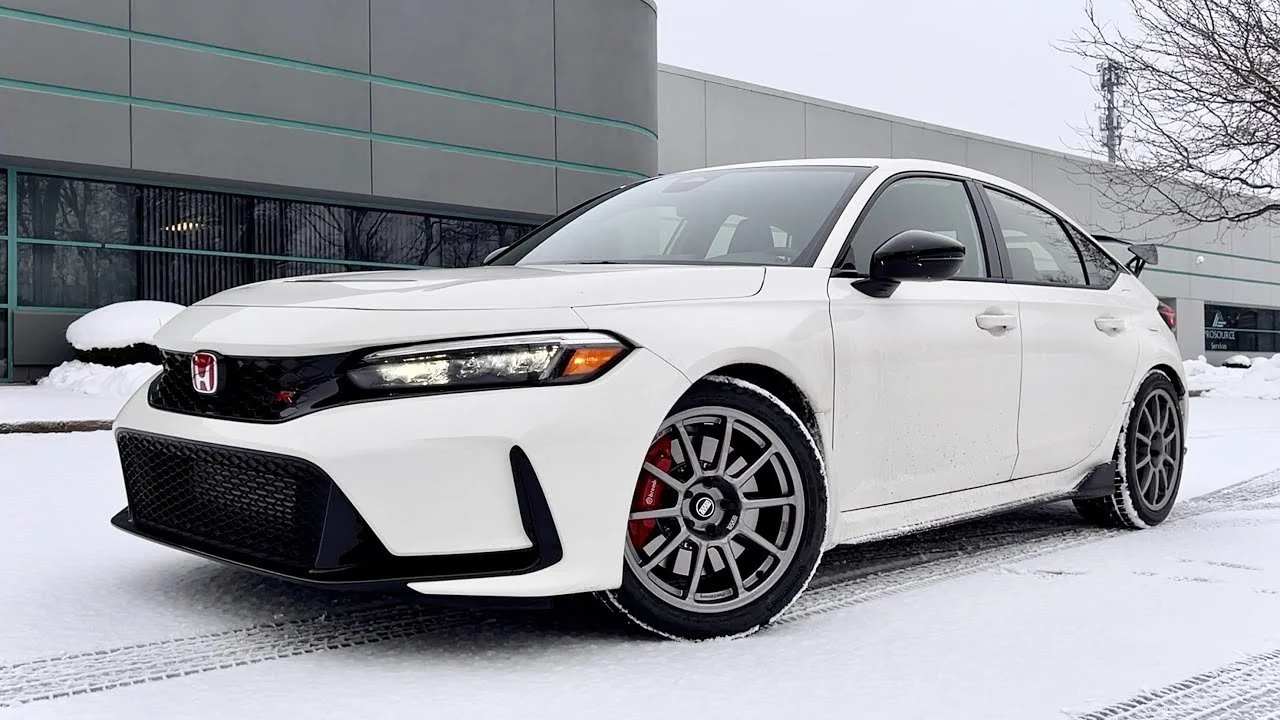
Tread design is crucial for optimizing tire performance across different conditions. Winter tires come equipped with treads that feature deeper and wider grooves specifically aimed at clearing snow and slush from the tire's path. This design helps maintain consistent road contact, providing stability in adverse conditions. In addition, numerous tiny cuts in the tread enhance traction on slick surfaces, ensuring safer winter driving.
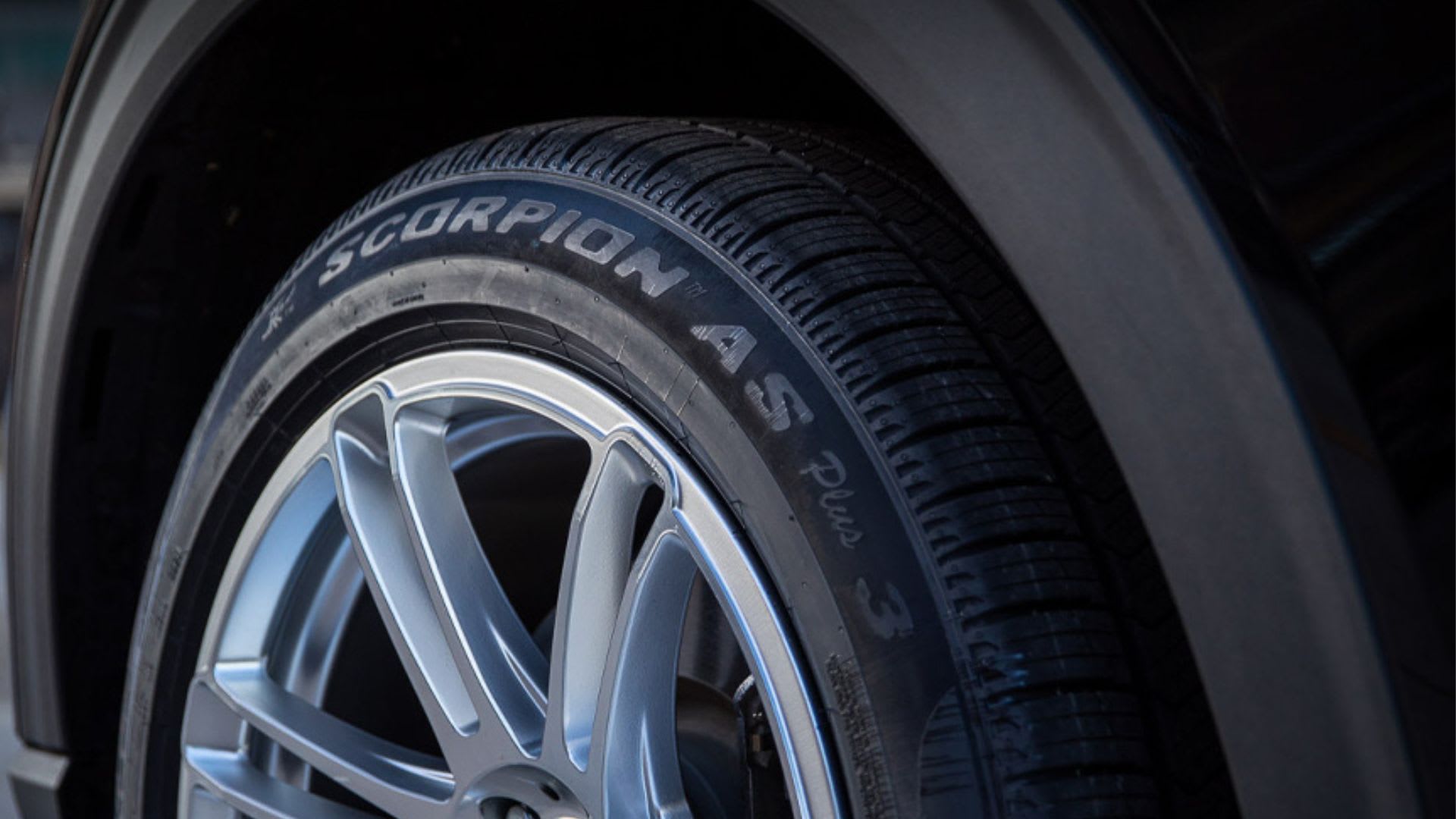
All-weather tires are crafted to handle a variety of conditions, boasting tread patterns that are more assertive than their all-season counterparts. The enhanced grooves and cuts offer improved handling in wet and snowy situations while still performing well on dry roads. Meanwhile, all-season tires focus on comfort and quietness, with less aggressive tread patterns that are ideal for moderate climates. These tires are designed for smooth surfaces, balancing a quiet ride with satisfactory traction under mild weather conditions.
Rubber Compound Technology
The type of rubber compound used in a tire dictates its adaptability to temperature fluctuations. Winter tires use specialized formulations that remain flexible in cold weather, an essential trait for maintaining grip on icy roads. This adaptability ensures that the tires conform to the road surface, providing reliable traction.
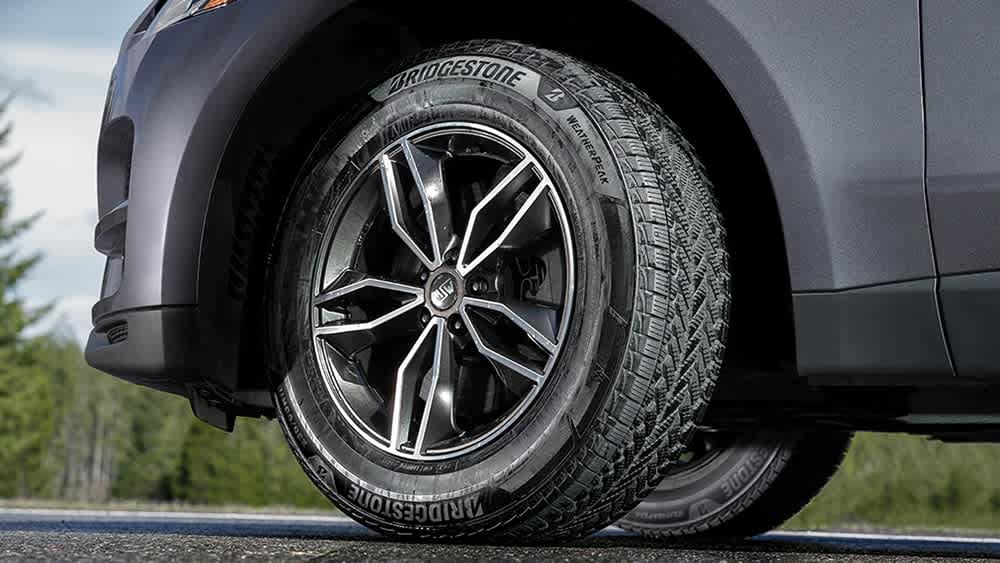
All-weather tires incorporate a compound blend that allows for performance in a broad range of temperatures. These tires are engineered to remain supple in the cold while also enduring the heat, thanks to advanced polymer technology. In contrast, all-season tires utilize more rigid compounds aimed at extending tire life. While they perform well in moderate temperatures, their rigidity can limit performance in extreme cold, making them less suitable for harsh winter conditions.
Safety Certifications and Ratings
Safety certifications and ratings give insight into a tire’s capabilities. The Three-Peak Mountain Snowflake (3PMSF) symbol signifies that a tire can handle severe snow conditions. This certification means the tire has undergone tests verifying it exceeds certain traction thresholds.
The M+S (Mud and Snow) label often found on all-season tires indicates basic suitability for muddy or lightly snowy conditions, based on the tread’s design. However, this label doesn't equate to rigorous winter performance standards. Additionally, speed and load ratings differ across tire types, guiding drivers in selecting the appropriate tire to match their vehicle's needs and ensuring safe operation under various conditions.
Which Tire Type Is Right for Your Driving Needs?
Climate Considerations
Selecting the appropriate tire involves understanding the typical weather conditions in your driving area. In regions where winter brings consistent cold, tires specifically designed for snow and ice, like those certified with the 3PMSF symbol, offer unmatched safety and control. These tires excel in areas with regular snowfall and icy roads, ensuring you maintain traction when it matters most.
For places that experience snow occasionally but not extensively, all-weather tires offer a versatile solution. These tires manage light snow and handle varying temperatures effectively, making them a good fit for regions with unpredictable winter weather. Meanwhile, all-season tires cater to climates where winter weather is rare, providing dependable performance throughout the year without the hassle of seasonal tire swaps.
Driving Habits and Requirements
How and where you drive significantly influence your tire choice. If your daily routes take you through snowy regions, tires optimized for winter conditions are crucial for maintaining safety and performance. For drivers encountering winter conditions only sporadically, all-weather tires offer a balanced approach, providing reliable traction across diverse environments.
The nature of your journeys also plays a role. Long highway drives may benefit from the quiet and efficient ride of all-season tires, whereas city drives in winter demand the reliable grip offered by winter or all-weather tires. Adventurous routes through mountain regions or frequent visits to snowy destinations call for the robust performance of winter tires to ensure safe travel.
Cost and Convenience Factors
Budget considerations are integral to tire selection. While winter tires often require purchasing an additional set for seasonal use, they promise enhanced safety during harsh winters. All-weather tires, with their year-round capability, reduce the need for storage and seasonal changes, offering a practical solution for many drivers.
The lifespan and warranty of each tire type contribute to their overall value. All-season tires generally provide the longest tread life, making them a cost-effective choice for mild climates. Evaluating these factors helps in choosing tires that align with both your financial plan and driving requirements, ensuring you get the most out of your investment.
How to Choose Between Winter, All-Weather, and All-Season Tires
Evaluate Your Winter Driving Conditions
Start by understanding the specific conditions you encounter during winter. Identify the usual temperature range for the season—if temperatures frequently drop significantly, winter tires might be essential. Consider the regularity and intensity of snowfalls, as these conditions demand tires capable of maintaining traction on snowy terrain. Also, take into account how often icy roads or freezing rain occur, as these can influence your tire choice toward those with enhanced grip.
Your comfort level with driving in winter weather is a key consideration. If navigating snowy or icy roads feels daunting, prioritize tires that enhance stability and safety. Check local regulations, as some areas may require specific tire types during certain months, which could impact your decision and ensure you meet legal requirements.
Compare Performance Priorities
When considering tire performance, reflect on what matters most for your driving needs. For those who prioritize safety in harsh winter conditions, specialized winter tires offer superior control. If you prefer the convenience of using one tire type throughout the year, all-weather tires provide a versatile option. Evaluate how important a quiet and smooth ride is to you—winter tires may produce more noise compared to all-season alternatives.
Assess how your tire choice might affect fuel consumption. All-season tires often deliver better mileage due to their design, which is optimized for efficiency. In contrast, the deeper treads on winter tires can increase fuel usage. Additionally, think about your handling and braking needs. If you require precise handling and effective braking performance, choose tires that align with these requirements to ensure optimal safety on the road.
Make an Informed Decision
To make the best choice, seek insights from various sources. Engage with tire experts who can offer tailored advice based on your vehicle, driving habits, and regional weather patterns. Their knowledge can help you navigate any uncertainties and guide you to the right tire selection. In addition, consider reading customer reviews to gain perspective on real-world experiences with different tire models.
Review the warranties and expected tread life of the tires you are considering. These factors contribute to the overall value and cost-effectiveness of your choice. Factor in the total ownership costs, including potential expenses for tire changes if seasonal tires are necessary. Ultimately, select tires that fit your vehicle's specifications and meet your driving demands, providing reliable performance and safety across varying conditions.
Your tire choice directly impacts your safety, comfort, and driving confidence throughout the year. Whether you need the superior winter grip of snow tires, the year-round convenience of all-weather tires, or the balanced performance of all-season tires, understanding these differences empowers you to make the right decision for your unique driving situation. When you're ready to upgrade your tires, we make it easy to shop for tires online and find the best deals that match your specific needs and budget.
Ready to find the perfect tires?
Search By